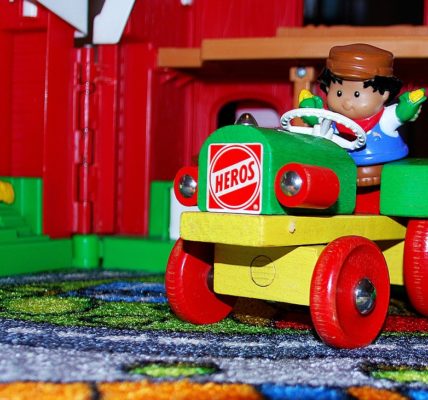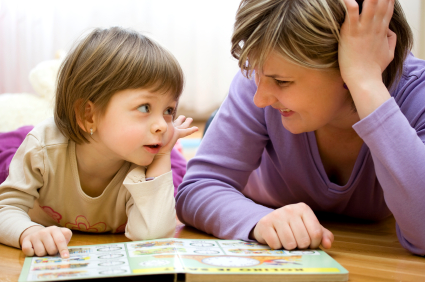
The Power of Playful Learning
When it comes to educating kids, incorporating play into their learning experience can have numerous benefits. Educational games provide a fun and interactive way for children to acquire new knowledge and skills. Among the various types of educational games, word games stand out as an effective tool for learning while playing.
Benefits of Educational Games for Kids
Engaging in educational games offers several advantages for children’s development. Here are some key benefits:
- Enhanced Vocabulary: Word games encourage kids to expand their vocabulary by introducing them to new words and challenging them to find creative solutions.
- Improved Spelling and Grammar: Through word games, children can practice spelling and learn grammatical rules in a fun and interactive way.
- Critical Thinking Skills: Word games often involve problem-solving and strategic thinking, helping children develop their critical thinking abilities.
- Increased Cognitive Skills: Playing word games stimulates various cognitive functions such as memory, attention, and reasoning.
- Boosted Confidence: As children succeed in word games, their confidence in their language abilities grows, motivating them to further explore and excel in their language skills.
Word Games as a Fun Learning Tool
Word games offer a playful approach to learning that can captivate children’s attention and make the learning process enjoyable. These games can be played both independently and with others, allowing kids to engage in friendly competition or work collaboratively.
By participating in word games, children not only acquire language skills but also develop important social and communication skills. Word games can be incorporated into various settings, including family game nights, classroom activities, and even long car rides.
Introducing word games to kids at an early age can foster a love for language and learning, setting them up for success in their educational journey. Whether it’s classic games like Scrabble and Boggle, interactive word puzzles, or digital word game apps, there is a wide range of options to choose from.
As parents, you can actively participate in word games with your children to create a bonding experience while promoting their learning. Encourage them to think creatively, explore new words, and celebrate their achievements. For more game ideas and suggestions, be sure to check out our articles on cooking games for kids, party games for kids, board games for kids, card games for kids, math games for kids, puzzle games for kids, animal games for kids, memory games for kids, fun kids games, and music games for kids.
Word games have the power to transform learning into a joyful experience, allowing children to acquire language skills while having a great time. So, let the playful learning begin!
Classic Word Games
Introducing children to classic word games is not only a fun way to keep them entertained but also a fantastic opportunity for them to learn and expand their vocabulary. These games encourage critical thinking, spelling, and problem-solving skills. In this section, we will explore three popular classic word games that kids can enjoy: Scrabble, Boggle, and Hangman.
Scrabble
Scrabble is a timeless word game that challenges players to create words using letter tiles and strategically place them on a game board. Each letter has a specific point value, and players earn points based on the length and complexity of the words they form.
Scrabble not only helps children improve their spelling and vocabulary but also enhances their strategic thinking and planning skills. It encourages them to think creatively and search for high-scoring words while utilizing the limited number of tiles available.
To make the game more enjoyable for younger players, consider using simplified rules, allowing them to form words with the help of their peers or family members. Scrabble is an excellent way to spend quality time together while fostering a love for words and language.
Boggle
Boggle is a fast-paced word game that challenges players to find as many words as possible within a set time limit using a grid of letter cubes. The letters in each word must be connected horizontally, vertically, or diagonally. Once the time is up, players compare their word lists, and points are awarded based on the length of the words found.
Boggle is a fantastic game for children to improve their word recognition, spelling, and vocabulary skills. It encourages them to think quickly, search for patterns, and expand their word bank. Additionally, Boggle can be played with different variations to make it more accessible for younger players, such as allowing three-letter words or providing hints.
Hangman
Hangman is a classic word-guessing game that challenges players to guess a hidden word letter by letter. One player thinks of a word and reveals the number of letters through dashes. The other players attempt to guess the word by suggesting letters. For every incorrect guess, a part of the “hangman” is drawn. The game continues until the word is guessed correctly or the hangman is completed.
Hangman is an engaging game that helps children develop their vocabulary, spelling, and deduction skills. It encourages them to think critically, consider various possibilities, and make informed guesses. Hangman can be adapted to different difficulty levels, allowing players to choose words suited to their age and knowledge.
By introducing children to these classic word games, parents can offer a fun and interactive way for their kids to learn and enhance their language skills. Encourage friendly competition, provide guidance when needed, and create a positive learning environment. Remember, the goal is to foster a love for words and learning while spending quality time together.
Interactive Word Games
Incorporating interactive word games into your child’s playtime can be a delightful way to enhance their vocabulary and language skills. These games not only provide entertainment but also encourage learning in a fun and engaging manner. Let’s explore three popular interactive word games suitable for kids: word puzzles and crosswords, word bingo, and word charades.
Word Puzzles and Crosswords
Word puzzles and crosswords are excellent games for kids to expand their vocabulary and improve their spelling. These games challenge children to think critically and find words that fit specific criteria. Word puzzles typically involve finding words hidden within a grid of letters, while crosswords require filling in words based on given clues.
Playing word puzzles and crosswords can help children develop their problem-solving skills, enhance their concentration, and boost their word recognition abilities. Additionally, these games can be a great way to bond with your child as you work together to solve the puzzles. You can find a variety of age-appropriate word puzzles and crosswords both online and in puzzle books designed for kids.
Word Bingo
Word bingo is a delightful twist on the traditional game of bingo, incorporating words instead of numbers. In this game, children are given bingo cards featuring words rather than numbers. As words are called out, players mark off the corresponding words on their cards. The first player to complete a row, column, or diagonal of marked words shouts “bingo!” and wins the game.
Word bingo is an effective way to improve vocabulary and word recognition skills. It encourages children to actively listen and identify words, while also promoting friendly competition. You can create your own word bingo cards tailored to your child’s learning level or find printable versions online.
Word Charades
Word charades is an interactive game that combines acting and guessing words. In this game, one player selects a word and acts it out without speaking, while the other players try to guess the word within a time limit. Word charades can be played individually or in teams, making it a fantastic game for parties or family gatherings.
This game not only enhances vocabulary and language skills but also encourages creativity, imagination, and non-verbal communication. It can be an enjoyable way for kids to learn new words and practice expressing themselves through gestures and actions. You can find word charades cards with age-appropriate words online or create your own tailored to your child’s learning level.
By incorporating interactive word games into your child’s playtime, you can stimulate their language development and make learning an enjoyable experience. Whether it’s solving word puzzles, playing word bingo, or engaging in word charades, these games provide a playful way for kids to expand their vocabulary and language skills.
Digital Word Games
In today’s digital age, there is a wide array of word games available on various platforms that can engage and educate kids. These digital word games offer a convenient and interactive way for children to enhance their vocabulary, spelling, and language skills. Let’s explore some popular options: word apps and mobile games, online word games and websites, and word game consoles.
Word Apps and Mobile Games
Word apps and mobile games provide a portable and accessible way for kids to engage in word play. These apps often offer a range of activities, including word puzzles, anagrams, and word search games. With colorful graphics and engaging gameplay, kids can enjoy learning while having fun on their smartphones or tablets.
Some word apps and mobile games also incorporate educational features such as hints, definitions, and pronunciation guides to assist children in their word learning journey. These apps can be a great resource for parents looking to provide their kids with entertaining and educational content on the go.
Online Word Games and Websites
The internet is a treasure trove of word games and websites designed to entertain and educate kids. Online word games often feature a variety of challenges, including word scrambles, crossword puzzles, and word-building activities. Kids can play these games directly on their computers or tablets, allowing them to develop their language skills while enjoying screen time.
Many online word game websites offer different difficulty levels, allowing kids of all ages and abilities to participate. Some websites even provide additional resources such as spelling quizzes, vocabulary lists, and language learning tools to further enhance the educational value of these games.
Word Game Consoles
For families who enjoy gaming together, word game consoles are a fantastic option. These consoles offer a dedicated platform for playing various word games, making them an appealing choice for kids who love both gaming and learning. Word game consoles often include popular games such as word trivia, hangman, and word association challenges.
These consoles typically provide a family-friendly gaming experience, allowing parents and kids to play together and compete in word-based activities. With the use of controllers or interactive devices, kids can actively participate in word games while having a great time with their loved ones.
By embracing digital word games, parents can leverage technology to make learning enjoyable for their children. Whether through word apps and mobile games, online word games and websites, or word game consoles, kids can strengthen their language skills while engaging in entertaining gameplay. Remember to balance screen time with other activities to ensure a well-rounded approach to learning and play.
Creating Word Games at Home
If you’re looking for engaging and educational activities to do with your kids, creating word games at home is a fantastic option. These games not only promote language and literacy skills but also provide an opportunity for quality bonding time. Here are a few DIY word games that you can easily set up and enjoy with your children:
DIY Word Scavenger Hunts
Word scavenger hunts are a fun way to encourage kids to explore their surroundings while expanding their vocabulary. Create a list of words related to objects or items in your home or outdoor environment. Provide your child with the list and let them search for these items. As they find each item, they can check it off the list. This game enhances their word recognition, observation skills, and critical thinking abilities.
To make it more challenging, you can include clues or riddles to guide them towards the hidden objects. For example, “I am something you wear on your feet, and I rhyme with ‘socks’.” This adds an extra layer of excitement and problem-solving to the scavenger hunt.
Word Memory Games
Memory games are not only entertaining but also help improve concentration and memory skills. Create a set of word cards by writing pairs of related words on index cards, such as “cat” and “hat” or “sun” and “fun.” Place the cards facedown on a table and take turns flipping them over to find matching pairs. Each time a player flips a card, they should say the word aloud. This reinforces word recognition and pronunciation.
You can adjust the difficulty level based on your child’s age and abilities. Start with a few pairs of cards for younger children and gradually increase the number of cards for older kids. This game can be adapted to various themes, such as animals, colors, or even sight words for early readers.
Storytelling and Word Association Games
Storytelling and word association games stimulate imagination, creativity, and language development. Begin with a simple sentence or phrase, such as “Once upon a time, there was a princess.” Then, take turns adding one word at a time to build a collaborative story. For example, “Once upon a time, there was a princess who lived in a magical castle. She had a pet _ .” Each player adds a word that connects to the previous word, creating a unique and imaginative story.
Another word association game is “I Spy,” where one player selects an object in the room and provides a clue by saying, “I spy with my little eye something that starts with the letter ___.” The other players take turns guessing the object based on the clue. This game encourages word association and vocabulary expansion.
Creating word games at home not only promotes learning but also provides an opportunity for quality family time. Remember to adapt the games based on your child’s age and interests. By engaging in these enjoyable activities, you can foster a love for words and language while strengthening your child’s cognitive and linguistic skills.
Image by WOKANDAPIX from Pixabay







1 COMMENTS